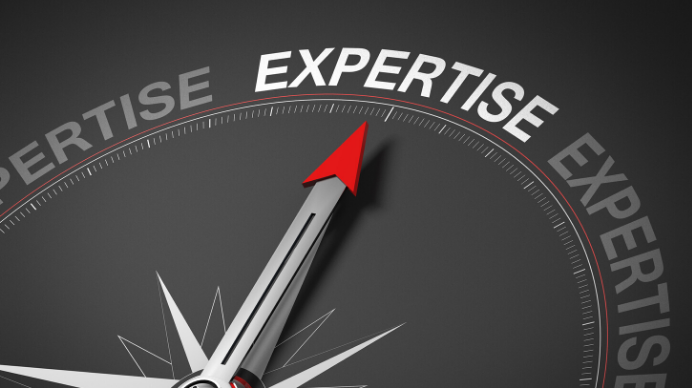
In the current era, a growing gap separates the reality between physicians and the education that they receive. Historically, medical training has targeted theory and curriculum building. However, this gold standard practice does not prepare physicians to deal with the increasing complexity of healthcare contexts. The population’s aging, chronicity of diseases, and polymorbidity, together with advances in biomedical knowledge and technology, are some examples of that. The quality of combining knowledge acquisition and retention with experience and expertise has been traditionally blurred.
Madrid - February 20, 2020. Two 2018 Canadian studies on adaptive experience and self-regulated learning present interesting perspectives on the development of the condition of being an expert. The English term “expertise” refers to a combination of theoretical knowledge and practical experience and can be defined as those characteristics, skills, and knowledge that distinguish experts from beginners. Experts are those individuals who consistently show superior performance in tasks in their fields. These are characterized by their capacity for innovation, improvisation, creativity, and adaptive theoretical-practical knowledge. Continuous learning, flexibility, and the pursuit of challenges define an expert physician.
Cognitive psychology has made important contributions to the theoretical substrate of the learning process by analyzing the way in which clinical knowledge is organized. Proponents of the script theory argue that clinical knowledge is organized in the form of scripts or schemas that group diseases, symptoms, mechanisms, and management as a result of clinical experience. The problem arises when these cognitive schemas do not exist, are inadequate, or when a script is used erroneously during patient care. Another theory emphasizes the impact of concrete experiences and abstract knowledge in which physicians use all these resources for decision making.
Recent research explores how experts transform and expand their knowledge through clinical activity. Emerging from these studies is the concept of adaptive experience or expertise, supported by the flexibility by which a group of experts achieves the balance between acquired knowledge and creation of new knowledge in response to the novelty and complexity of reality. The diagnostic process then becomes a dynamic process. The evidence supports the claim that the ability to make flexible use of knowledge is a key element in clinical decision making, while teaching focused on the organization and application of knowledge precludes the creation of new knowledge.
Medical education must align with these precepts. That is, to broadly develop medical skills, one must embrace the acquisition and organization of knowledge while paying attention to developing adaptive experience. One of the main elements to achieve this is the preparation for future learning, described by Prof. Maria Mylopoulos, from the University of Toronto, as “the ability to learn new information, make effective use of resources, and generate new procedures to support learning and solving problems in practice.”
According to the author, the preparation for future learning must emphasize three points: prioritize understanding over acting; expose students to challenges that, due to their difficulty level, contribute to the generation of new knowledge; and, lastly, to maximize variation to help the students manage complex or atypical cases. These three principles complement each other and, if applied correctly, ensure that the essential contents are taught in a way that trainers present variations and difficulties in the teaching process.
Experts and self-regulation
For Professor Susane P. Lajoie, from McGill University, an expert's theoretical-practical knowledge is nourished by self-regulated learning. Experts are those who come up with the right solutions and consistently demonstrate a high level of performance. They have a deep understanding of the area in which they perform professionally and have an extensive knowledge foundation that helps them better recognize clinical patterns. Furthermore, they observe and self-evaluate their own performance.
Self-regulation involves processes that go beyond orientation, planning, execution, monitoring, evaluation, or elaboration. It requires critical thinking, so one is able to come up with solutions and reconstruct the problems in question. Self-regulated learning leads to problem solving through a cyclical process of foresight, action, and reflection. For example, in a diagnosis of tachycardia, forecasting would involve requesting serum tests. The action would consist of carrying out said tests and analyzing the results to evaluate the diagnostic hypothesis. Reflection allows us to reevaluate the state of the problem and its solution, so the circle is complete.
Thus, we arrive at the differentiation between an “adaptive” expert and a “routine” expert. Adaptive experts are those with enough expertise to try to solve problems creatively and expand their knowledge in novel situations, in contrast to routine experts, who are limited in performing well within the limits of their knowledge. This new perspective on expertise provides a valuable theoretical framework to rethink the training of students and professionals where the application of acquired knowledge must be combined with the transformation of knowledge through clinical reality.
Safe practice
The cognitive learning models that Professor Lajoie describes allow safe practice environments for medical students through the steps of "modeling," "creating structures," and "disappearance." Modeling refers to the outsourcing of the expert process for students to observe and incorporate into their own performances. The creation of structures requires response and external advice, so that apprentices are able to reach their maximum potential. This advice tends to disappear once the apprentices take charge of their own learning.
Considering that learning is a lifelong process, self-regulated learning ensures that physicians remain open to acquiring new knowledge and applying this acquired knowledge in a versatile way. Although it is true that each individual learns in a different way, a well-designed learning environment serves to identify, monitor, and respond to each and every learner profile.
Reference:
Mylopoulos M, Kulasegaram K, Woods NN. Developing the experts we need: Fostering adaptive expertise through education. J Eval Clin Pract. 2018;24(3):674–7.
Lajoie SP, Gube M. Adaptive expertise in medical education: Accelerating learning trajectories by fostering self-regulated learning. Med Teach. 2018;40(8):809–12.
Our personalized help center enables you to obtain technical support and help for navigating through the site and using the program.